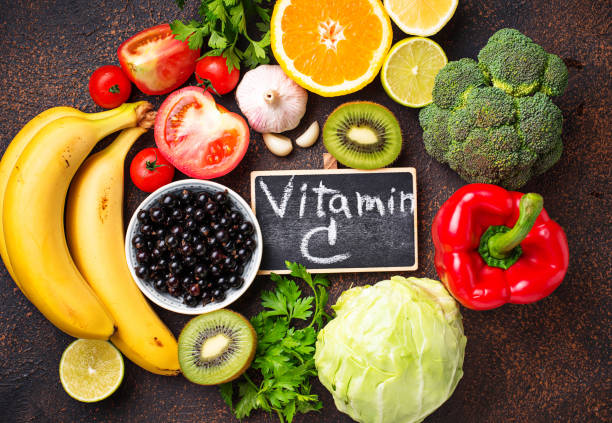Main Importance Of Vitamins for Our Body System.
What is Vitamin?
A vitamin is an organic molecule that is an essential micronutrient which an organism needs in small quantities for the proper functioning of its metabolism. Essential nutrients cannot be synthesized in the organism, either at all or not in sufficient quantities, and therefore must be obtained through the diet.
Vitamins permit your body to grow and create. They additionally assume relevant jobs in bodily capacities, for example, digestion, invulnerability, and digestion.
Types of Vitamins
There are 13 essential vitamins, including vitamins A, C, D, E, and K and B vitamins, such as riboflavin and folate.
According to the U.S. National Library of Medicine, the ideal approach to meet your vitamin needs is to eat a regular eating routine containing an assortment of foods. You may require dietary enhancements on the off chance that you can’t address your issues through diet alone. Look for direction from your primary care physician or dietitian before making enhancements, be that as it may.
Does Vitamin D Accumulate In Your System?
As a fat-solvent vitamin, vitamin D in overabundance isn’t flushed from your body through pee. Even though your body can get harmful from over the top supplemental admission, the poisonousness doesn’t get from vitamin D–rich foods or sun introduction, according to the Office of Dietary Supplements. The most extreme vitamin D measure that grown-ups can securely acquire from supplements is 4,000 universal units (IU) every day.
On the off chance that you surpass this breaking point, the overabundance of vitamin D remains in your blood, causing antagonistic impacts, such as unexpected weight reduction, anorexia, and unusual heart rhythms. An overabundance of vitamin D can raise your blood levels of calcium, causing heart, blood vessel, and kidney harm.
For instance, expanding littler sums, 1,000 IU every day – alongside calcium in supplement structure, builds your hazard for kidney stones. Adequate admission of vitamin D for most grown-ups is 600 IU every day from food or supplements.
Skeletal System And Vitamin D?
Foods, dietary enhancements, and sun presentation provide vitamin D. Getting adequate sums – 600 IU day by day for most grown-ups – is vital for generally speaking health. Your skeletal system requires vitamin D because the vitamin encourages calcium retention, a key for healthy bones and improvement. Your liver, not your bones, produces vitamin D in light of the sun’s bright beams. This vitamin’s significant food wellsprings incorporate cod liver oil, seafood, salmon and fish, and invigorated juices and dairy products. Eggs, margarine, and sustained grains contain moderate sums.
Vitamin And Digestive System?
Like the remainder of your body, your digestive system requires all essential vitamins and minerals. In any case, b vitamins and vitamin C assume especially significant jobs in digestive health, says Dr. Chris Iliades, a doctor and contributing health author for EveryDayhealth.com. The B vitamin folate, or folic corrosive, is connected with a diminished hazard for malignant colon growth. Vitamin B1, additionally called thiamine, helps your body believer starches into vitality during digestion.
Vitamin B3, or niacin, considers the frequent breakdown of sugars, fats, and liquor. Vitamin B6, or pyridoxine, promotes protein digestion. The cancer prevention agent vitamin C improves iron ingestion and gum and tooth health. Eliades proposes eating a routine eating wealthy in entire grains, beans, seafood, dairy products, and verdant green vegetables to meet your B vitamin necessities. To get vitamin C, you ought to devour an assortment of products of the soil.

To What Extent Does Vitamin D Stay In Your System?
Vitamin D is available in your body tissues and blood. Even though you get vitamin D from foods, your body additionally produces it in light of sun presentation. According to the Office of Dietary Supplements, Vitamin D in your bloodstream shows up in blood tests and has a generally long coursing life of around 30 days.
If you expend vitamin D–rich foods or enhancements today, a bit will probably remain present in your body for one month. In any case, the period vitamin D stays in your body tissues stays muddled.
Vitamin D enters your system at different rates relying upon its source and various factors, such as your general health and whether vitamin admission is combined with different supplements and foods.
Vitamin D specialists gauge that 5 to 30 minutes of sun presentation between 10 a.m. what’s more, 3 p.m., in any event, two times seven days on your arms, legs, or back without sunscreen is sufficient for your body to integrate the vitamin D you need, says the Office of Dietary Supplements.
Vitamin D from foods and supplements enters your liver and greasy tissue during digestion. Although paces of metabolism differ, the whole digestion process takes 24 to 72 hours for many people, according to Dr. Michael F. Picco, a Mayo Clinic gastroenterologist. Inside this time, your body retains vitamin D and other fat-solvent supplements.
Lymphatic System
Your lymphatic system is a system of pipes, vessels, hubs, and organs that produce and transport lymph, a clear, yellowish liquid containing white blood cells, from your body tissues to your bloodstream. It likewise ships fat-dissolvable vitamins, including A, D, E, and K. After you eat, fat-dissolvable vitamins are ingested into fat globules that movement through your lymphatic system to your small digestive system and into coursing blood. They are then put away in body tissues.
Vitamins And Zinc
Your body doesn’t store water-solvent vitamins – B vitamins and vitamin C – because they break up in bodily liquids. Eating an assortment of healthy foods, for example, natural products, vegetables, fish, and entire grains, every day forestalls insufficiency. Fat-solvent vitamins, which incorporate A, D, E, and K, flow in your blood.
Your body likewise stores a large number of them in your body tissues. These stores keep going for a quarter of a year in a very much sustained individual, according to Mark Brandt, a partner professor of science and natural chemistry at the Rose-Hulman Institute of technology. Your body can’t store zinc, and your kidneys remove unused sums through pee.

